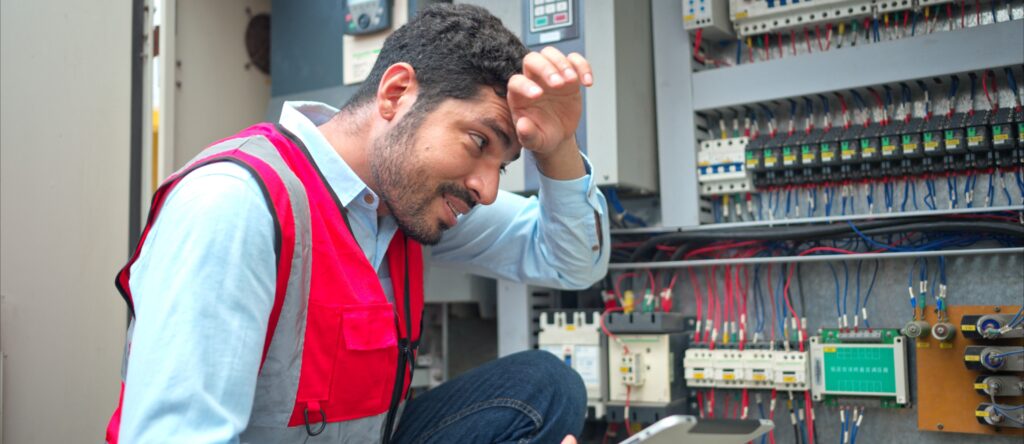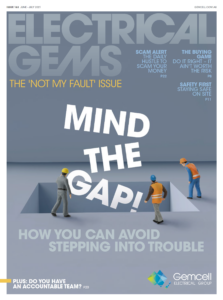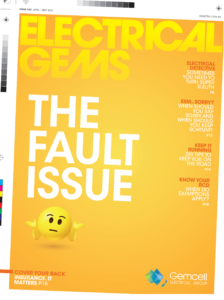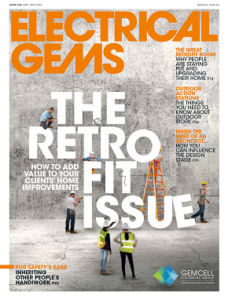Electrical contracting work brings risk and danger with it every day. We don’t need to tell you that.
And, in your everyday, there’s no doubt a range of safety precautions in place to keep risk at a minimum for you, your team and your clients, too.
However, if all else fails, you need something to fall back on – and in today’s increasingly complex and litigious world, professional indemnity insurance is an important thing to have in your toolbox.
For some contractors, it may be a stipulation in tenders and bigger contracts. If you’re in that boat, well done, advance to go and collect $200.
If you’re not, here’s what you need to know.
What is professional indemnity insurance?
As a contractor, you make judgement calls every day. There aren’t many jobs that are completely straightforward – the majority need your experience and expertise to come up with a solution. And that solution is usually part science, part art.
This is where professional indemnity insurance can help out. Because if something goes wrong as a result of your design or installation – i.e. your solution – you may be liable.
Effectively, professional indemnity insurance covers you against claims of professional negligence, errors or omissions in the advice and services you provide. It can cover legal costs as well as any compensation you might be up for, too, should something go wrong and your client suffers a financial loss.
Is professional indemnity insurance different to public liability insurance?
No. Public liability covers damage to a third party’s property or physical injury to a person. Professional indemnity covers professional mistakes or oversights.
Why is professional indemnity insurance important for electrical contractors?
Think about the jobs you’ve done in the past 12 months, and compare it to the jobs you were doing 15 years ago, if you go that far back.
OK, five years ago. Or, for the ‘more experienced’ among us, 25 years ago.
The key thing here is that those jobs have changed. Significantly. They’re more complex. From smart home installations to intricate renewable energy projects, those straightforward jobs are few and far between – and with greater complexity comes a greater scope for errors to creep in.
Also, and this is a key thing to consider here, we’re all living in a far more litigious world. People are seeing dollar signs and threatening legal action over something that in the not-so-distant past would have been sorted quickly and amicably. Or not pursued at all.
Now, we’re not saying what’s right and wrong here, and customers should of course expect great, reliable service, every single time. But the key issue here for your business is that if we know this is increasingly likely to happen, you need to protect your business.
And, even if the claim has no merit at all, to defend it can be astronomically expensive. Which (rumour has it) some claimants may rely on for a nice settlement. Professional indemnity can help cover those legal costs too.
What does professional indemnity insurance cover?
Every policy will be slightly different, so make sure you speak with your insurance company or insurance broker to make sure the professional indemnity policy is right for you.
Right, that’s the official bit out of the way.
A decent professional indemnity policy will typically cover the following:
- Breach of professional duty, negligence, errors or omissions in your services and/or advice.
- Misleading or deceptive conduct.
- Loss of documents critical to a project.
- Legal defence costs.
What does professional indemnity not cover?
Professional indemnity insurance generally doesn’t cover:
- Bodily injury or property damage.
- Criminal acts or intentional damage.
- Things you were aware of before the policy was taken.
- Unpaid fees.
Key things to consider when choosing a professional indemnity policy
There are a few things to keep in mind when choosing your insurance cover – it’s always good to speak to your insurer or broker to ensure you’re fully across what’s covered and what’s not.
- Sum insured – make sure you have the right level of cover. If you’re primarily working residential, that may be lower than commercial.
- Retroactive cover – does the policy cover you for work you’ve undertaken in the past?
- Excess – choosing a larger excess could keep premiums down.
- Policy wording – ensure you have read the policy (or at least understood what you are and aren’t covered for).
- Australian insurer – the policy you have must be written for work in Australia, and take into account local laws and regulations.
Seeking advice from an expert
You’re a living testament to the benefits of working with a pro, so when it comes to insurance it’s always good to speak to a broker. They can ensure you’re paired up with a policy that is right for your business today, and get the right price point from their panel of insurers. They can speak with you about other risks your business faces, too – and, if you need to make a claim, they’ll do all of the back and forth with the insurers, too.
Making sure your business is protected
Insurance is rarely anyone’s favourite topic of conversation, and it’s almost always a grudge purchase. After all, we buy it hoping we never need to use it.
But when you’re in business, you need to think of the bigger picture. Without the right protection in place, a simple mistake could end up costing you your livelihood.
While insurance can be expensive, what price do you put on your business?
And your ability to sleep soundly at night, come to that.
















































































